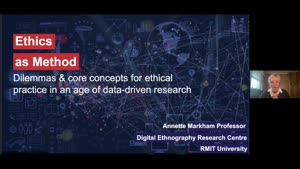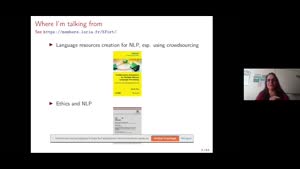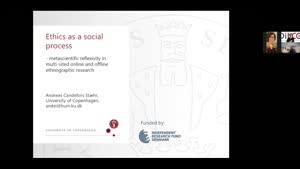Graphic cues and heterographic practices in digital discourse: DiLCo Lecture Series 2024 (22 February) - Jannis Androutsopoulos - University of Hamburg
- Lecture2Go
- Catalog
- F.5 - Geisteswissenschaften
- Sprache, Literatur, Medien (SLM I + II)
- Digital language variation in context (DiLCo)
Catalog
Graphic cues and heterographic practices in digital discourse: DiLCo Lecture Series 2024 (22 February)
Jannis Androutsopoulos is professor in German and media linguistics at the University of Hamburg. From 2016-2023 he was also a research professor at MultiLing, University of Oslo. His research explores relationships between language, media and society, covering themes such as the dynamics of multilingualism in digital spaces, the role of media in sociolinguistic change, spelling and script in a digital age, and language ideologies in media discourse. Recent publications include Handbuch Sprache und digitale Kommunikation (2024, co-edited with Friedmann Vogel, currently in press); Multilingual families in a digital age: mediational repertoires and transnational practices (2023, co-authored with Kristin Vold Lexander); and Polymedia in interaction (2021, guest-edited Special Issue of Pragmatics and Society, 12:5).
Jannis is currently coordinating DiLCo, the research network on ‘Digital language variation in context’, and a research project on semiotic landscapes and social inequality in secondary schools.
The spread of text-based mediated interaction during the 2010s has led to a proliferation of graphic contextualization cues for the coordination of mediated interaction and expression of stance. While the discourse functions of emoji are amply documented, non-referential features of written language (punctuation, spelling and typography) are only sporadically addressed (‘typographic tone of voice’, McCulloch 2019; ‘CMC cues’, Darics 2020; ‘prosodic orthography’, Heath 2021; ‘interactional punctuation’, Busch 2021). The research reported in this lecture draws on data from social media platforms to examine two features that index double-voicing in public digital discourse: (a) the ‘indignation mark’, a twist on the iterated exclamation mark that involves digits or numerals, e.g. ; (b) ‘alternating caps’, the alternation of upper and lower case characters within a word or phrase, e.g. ‘cLIMAtE chANge Is a hOAX’. The fact that these features occur in environments of otherwise orthographic writing, often as part of elaborate comments, weakens their normative interpretation as ‘deviations’ from a written standard; it invites instead an explanation that emphasizes the strategic manipulation of visual language in tandem with the construal of social positionalities in discourse. Based on data from German and Greek Reddit forums, this lecture uses the terms ‘graphic cues’ and ‘heterographic practice’ to examine the pragmatic and ideological work accomplished by graphic resources, with alternating caps as a case in point.
DiLCo Lecture Series 2024 aims to showcase cutting edge international research on digitally language and communication by both senior and younger researchers from across the world. We wish to present research that explores digital language and communication by drawing on key concepts and topics in socio-cultural linguistics, such as community, context, identity, mediated interaction, multimodality, and linguistic change. We particularly welcome presentations of innovative methods that cut across traditional disciplinary boundaries.
---
DiLCo (‘Digital language variation in context’) is a 3-year international research network initiated in 2021 at the University of Hamburg. The network brings together researchers from Europe and USA with expertise in computational, interactional, and ethnographic approaches to digital language and linguistics. It aims to provide a platform for the development of interdisciplinary ideas in digital language and communication research, and for early-career capacity building.

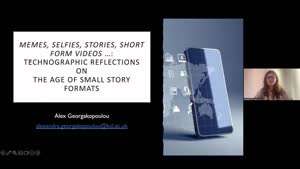
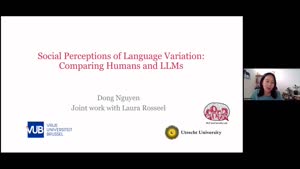
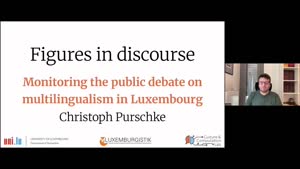
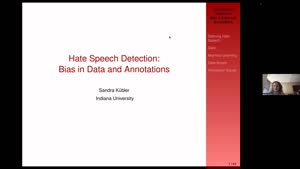
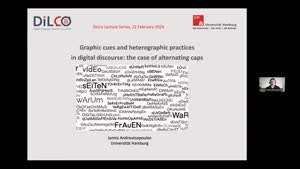
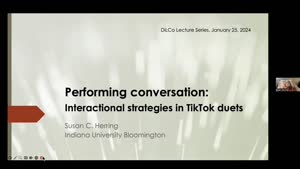
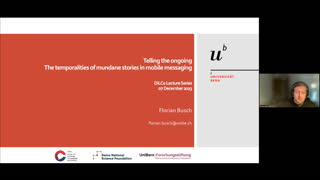
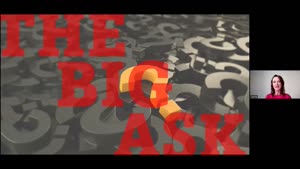
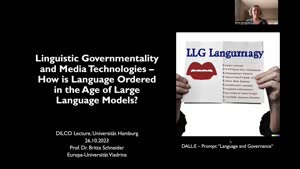
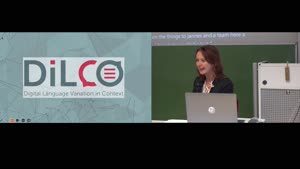
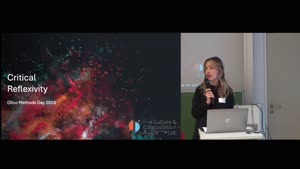
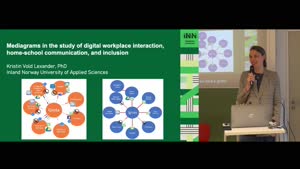
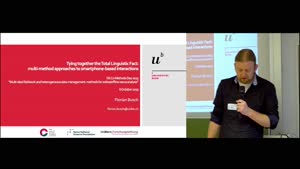
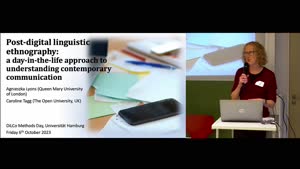
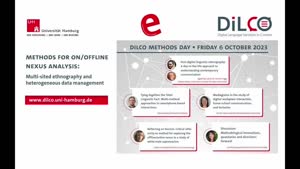
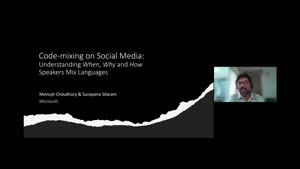
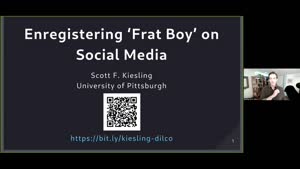
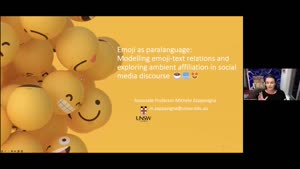
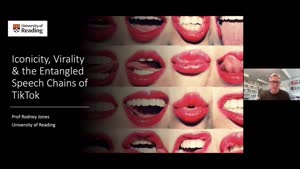
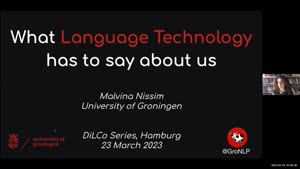
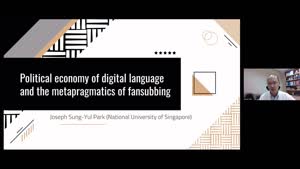
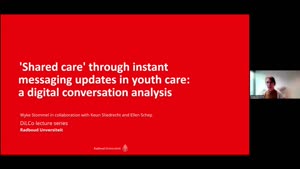
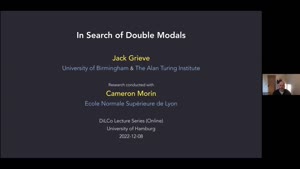
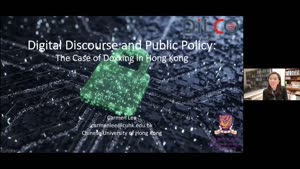
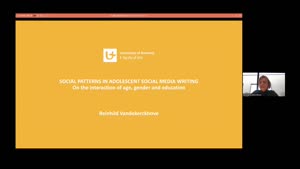
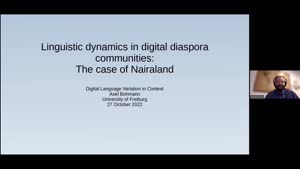
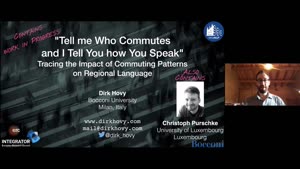
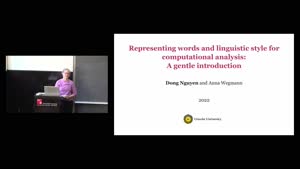
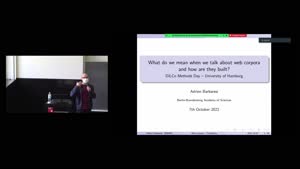
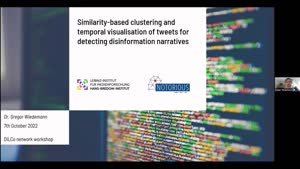
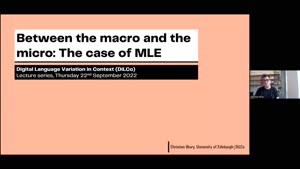
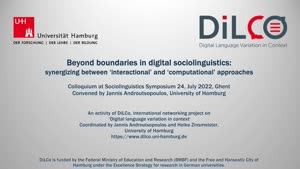
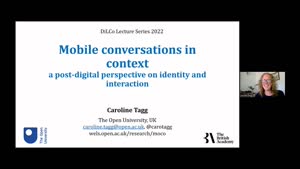
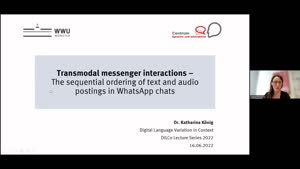
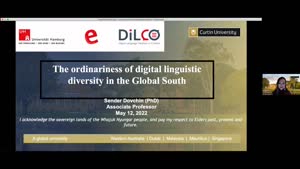
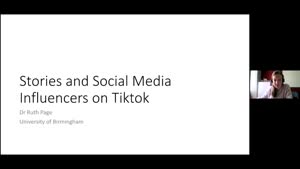
![Thumbnail - Graphic Prosody and political discourse on Greek Reddit [Presentation in Greek]](https://lecture2go.uni-hamburg.de/images/00.000_video-61074_2022-03-30_18-30_m.jpg?lastmodified=1663761108652)
